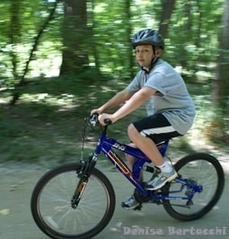最近幾年,教育部門一直都在說要為學(xué)生們減負(fù),不讓學(xué)校在節(jié)假日補(bǔ)課,不讓留太多的作業(yè),也不讓過度重視考試。可到了周末,那些背著各類學(xué)習(xí)工具的學(xué)生們還是會(huì)在各個(gè)學(xué)校門口成為一道風(fēng)景。這些孩子應(yīng)該從沒體會(huì)過做free-range kid(自由放養(yǎng)兒童)的滋味吧。
The expression “free range” usually relates to animals - often chickens and cows that range or go looking freely for food, rather than being closed in a cage or yard.

“Free range(自由放養(yǎng))”這個(gè)短語通常與動(dòng)物有關(guān),指雞或牛被放散出去自己覓食,而不是被關(guān)在籠子或牛圈里喂養(yǎng)。
The idea behind this is that animals allowed to wander about and be free will be happier and healthier and thus be better for human consumption.
這種喂養(yǎng)方式傳達(dá)的理念是,自由放養(yǎng)的動(dòng)物一般會(huì)更快活,也更健康,這樣也就更適宜人類食用。
So the idea of a free-range kid is that the child was allowed a fair amount of freedom by their parents while growing up. It’s said that this group of kids are more likely to thrive than those who are strictly monitored by parents. Allowing one's children free time is called free-range parenting.
因此,“自由放養(yǎng)兒童”也就是在成長過程中能夠從家長那里得到更多自由的孩子。據(jù)說這樣成長起來的孩子比那些時(shí)刻受家長嚴(yán)密監(jiān)控的孩子更容易成功。那些給孩子更多自由時(shí)間的家長就可以被稱為“自由放養(yǎng)父母”了。
相關(guān)閱讀
忙碌兒童綜合癥 hurried child syndrome
(中國日?qǐng)?bào)網(wǎng)英語點(diǎn)津 Helen 編輯)
